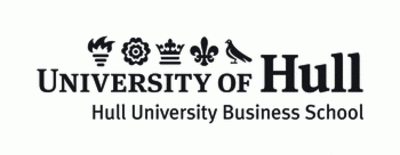
Hull MBA
Hull University Business School

Key Information
Campus location
Hull, United Kingdom
Languages
English
Study format
On-Campus
Duration
1 year
Pace
Full time
Tuition fees
Request info
Application deadline
Request info
Earliest start date
Aug 2024
Scholarships
Explore scholarship opportunities to help fund your studies
Introduction
Our AMBA accredited MBA provides a holistic perspective for developing responsible, strategic leaders; equipped to succeed in a fast-changing, competitive world with an approach we call 'Connected Thinking.
The Hull MBA will prepare you to lead responsibly and shape strategy – a route through to achieving significant career advancement by equipping you to succeed in a fast-changing, competitive world.
Our distinctive holistic approach will enhance your skills across the core areas common to any organisation, together with building a broad perspective on decision making and the diverse challenges of the global business environment.
Hull MBA Overview
Internationally accredited, the Hull MBA will help you develop into a confident, high-level professional capable of leading effectively and responsibly in a global business environment.
You'll build high-level skills across the functional and operational areas within an organisation, making you a highly-valuable member of any management team.
At the same time, you will understand how external pressures, complex connections and the nature of the international business impact on decision making, helping you to shape strategy and make choices that generate long-term benefits.
The programme incorporates world-class research, undertaken at the school, and is grounded in your business experience, delivering practical benefits in terms of personal and professional development.
MBA students are encouraged to take one of their modules in one of the overseas locations where the Hull MBA is delivered – Hong Kong, Singapore, Bahrain and Oman – adding a valuable international perspective. This international study option will also include an organisational visit at the overseas location.
MBA Program Structure
The taught elements of the Hull MBA are organised around five interconnected key themes, ensuring that learning in one area can be associated with and deepen understanding of all others.
The main functional areas in business are addressed across the themes of Managing Relationships, Managing the Value Chain, and Managing Knowledge, providing you with a comprehensive overview of how modern organisations operate.
Alongside this specialist expertise, the programme cultivates a broad perspective on the management of complex organisations, management decision making and the personal and professional skills needed to operate effectively in dynamic international contexts. This is achieved through the integrative material on the themes of Managing in a Global Context and Managing Strategically, exploring issues that run throughout the programme and across the functional themes.
To be awarded the Hull MBA students must complete
- ten core modules, two from each of the five core themes
- two optional modules
- an MBA Dissertation
Entry Requirements
Participant profile
Hull University Business School welcomes suitably qualified individuals to apply for entry to its MBA programmes. Those taking up study must have a sustained level of motivation and commitment to the programme. In order to maximise the potential for intellectual growth and development, participants will also need an enquiring and open mind and be willing to share their own knowledge of and perspectives on issues that affect every business.
Admission Eligibility
To be eligible for admission, applicants should normally possess
- a minimum of three years’ appropriate post-graduation work experience
- a good Bachelors degree (equivalent to a first or second class UK Honours degree) or an equivalent professional qualification.
Applicants for whom English is their second language will also be required to demonstrate English language proficiency equivalent to IELTS 6.5 or TOEFL 575 (or 90 for the internet-based test). Applicants may be exempt from the requirement to complete IELTS or TOEFL tests if they have evidence of equivalent English language proficiency – for example, if they have completed a degree in an English-speaking country or institution within the last five years or if they have worked in a predominantly English-speaking work environment for more than five years.